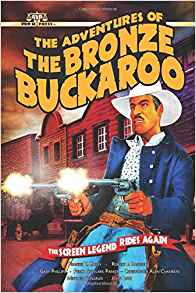"It was the best of times, it was the worst of times. . ."
You probably remember this opening line from A Tale of Two Cities. That was the novel that Charles Dickens published in 1859. But the description of that era might apply as well to our own era. There is no denying that we are having another bad year. Right out of the pandemic and ready to enjoy summer , , ,but now we have climate change occurring even faster than predicted. Droughts, tornadoes, forest fires, floods, mudslides. . .hoping no bridges will fall or buildings crumble. Watching for one of the trees towering around my house to land on top of my roof in the next high wind.
Here in upstate New York, between New York City and the Canadian border, we have alerts posted on the Northway suggesting we put on our masks. The same masks we were using during the pandemic.
When I dropped my dog, Fergus, off at daycare yesterday, I asked if they could keep him inside if the smoke got worse. He has allergies and he has been panting. I realized last night that I should turn off the air conditioner and turn on the humidifier. We were all -- including Maine Coon, Penelope, and I --breathing better after that. And this morning the sun was out. But on my way to drop him off, I could see the haze up ahead and I reached for my mask.
I was reminded this morning of something I have been pondering. That brings me to the title of my post. I've been thinking about how this era is a lot like the years between World War I and World War II. My historical thriller in progress is set in 1939. That year, in February, the Nazi rally in NYC precedes the Easter Sunday concert by Marian Anderson at the Lincoln Memorial. The opening of the New York World's Fair with the focus on"The World of Tomorrow" precedes that movie blockbuster about the Civil War and its aftermath, Gone With the Wind.
As I was reminded, it is sometimes a bad idea to use a real place as the setting of a book. For my Lizzie Stuart series, I have a fictionalized version of the history and geography of my home town, Danville, Virginia, and of Blacksburg, Virginia, home of Virginia Tech. I'm an alum of Tech (undergrad) and of UAlbany (grad school and faculty). I used buildings from both when I created my fictional university and located it on the campus in my mysteries. My fictional Southern city -- Gallagher -- has a history inspired by Danville.
I draw on Albany's real life history, but also have elements of an alternate universe in my Hannah McCabe police procedural novels set in my fictional Albany. I wanted to use real Albany history but have deniability about whether I was writing about real people and situations. And I haven't been. My two books have a twist with the UFO that had appeared in the skies in Nevada and disappeared after a NORAD scramble. I wrote about that UFO in 2012 in The Red Queen Dies. Now the government is admitting that UFOs are real and puzzling.
I wrote about a far-right candidate named Howard Miller, who was running for president in 2024 in both that first book and the second. What the Fly Saw. He was having an impact here in Albany. So was the female mayor. At the time when I wrote those two books, no real- life Howard Miller existed. At the time, Albany had never had a female mayor, not in all of the city's long history. But the mayor was elected while I was doing my revisions.
Now, I have a 2024 frame story about a murder related to the discovery of a time capsule in my historical thriller.. In my work in progress, the time capsule is discovered by some children who are playing. When it is taken to the museum to examine, a guard is killed and the time capsule is stolen. McCabe and her partner are trying to solve those crimes parallel to what is occurring back in 1939.
I thought that was really a great way to keep the story moving and introduce another layer of tension. In my 2024 story, the candidates for president are coming to Albany for a debate, Is one of them going to be a target? Ticking clock as they try to make the connection.
In real life, in1939, as the World's Fair in NYC opened, a time capsule was buried. Burying time capsules was a fad. Some of my characters were here in my fictional Albany when a time capsule was being buried and put something inside.
Imagine my delight -- and dread -- when I heard the roundtable panel on the WAMC (public radio) morning show discussing the time capsule that workmen had discovered when they were taking down the statue that had stood in front of City Hall. The statue was of Phillip Schuyler, New York's first senator. Schuyler was Alexander Hamilton's father-in-law. He was also a slaveowner. And -- just as I finally figured out how to solve the problem I was having with the pace and structure of my novel -- there is a time capsule in his statute.
Don't know whether to laugh or cry, This makes for a good story to tell doing a panel. But I'm beginning to feel as if anything I write might come true. Just kidding -- the truth is I do my research and look for what might have happened or could happen if. . .but still it is occasionally disconcerting.
Anyone else have examples of writing fiction that is a little too close to what happens next in real life?







